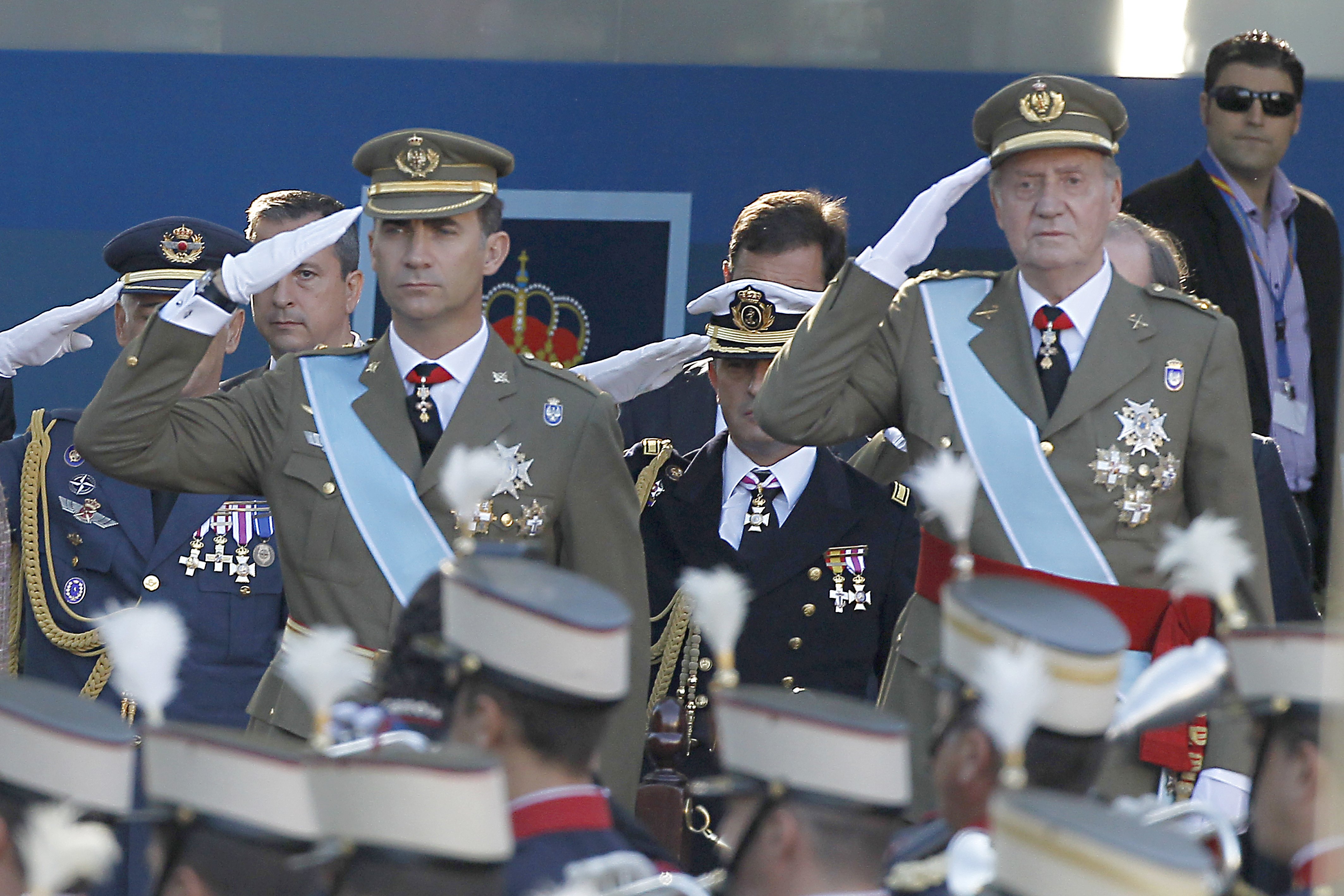Spain's scandal-struck king emeritus Juan Carlos I has informed his son Felipe VI that he is exiling himself from Spain and will thus leave the Zarzuela royal palace in Madrid, where he has resided up until now. The Spanish royal house has made the decision public just after the current Spanish monarchs completed a tour of the country. The last Spanish king who went into exile from Spain was Alfonso XIII, an action which gave rise to Spain's Second Republic of the 1930s, but Juan Carlos I follows in his footsteps in an attempt to save his son's throne.
The former king, who abdicated in favour of his son in 2014, states in a letter to Felipe VI that he makes the decision to go into exile "with deep emotion but great serenity," and quietly attributes the move to "certain past events of my private life."
"Now, guided by the conviction that it will provide the best service to Spaniards, their institutions and to you as King, I inform you of my deeply-considered decision to move, at the moment, out of Spain," he said.
The current Spanish monarch stated his "appreciation and respect" for his father's decision, and even chose to stress the "legacy" of Juan Carlos I. "The king wishes to emphasize the historical importance of his father's reign, as a legacy and a political and institutional work in the service of Spain and democracy; at the same time he wishes to reaffirm the principles and values on which this is based, within the framework of our Constitution and the rest of the legal system," adds Felipe VI.
Things have changed a great deal since the day in 2012 when Juan Carlos I briefly fronted up to the press after going elephant hunting in Botswana in the midst of the economic crisis. He simply said, "I'm sorry, I made a mistake, it won't happen again."
Today's decision culminates a journey that began with Felipe VI's decision to renounce his share of his father’s inheritance, following investigations in Switzerland about Juan Carlos's murky financial affairs connected to Saudi Arabia. It is a political move to save the monarchy, just as his unprecedented abdication was in June 2014.
This definitive action had been hovering in the air for days, and was being weighed up by both the Spanish government and the monarchy. In public, government spokesperson María Jesús Montero encouraged Felipe VI to take further steps, "celebrating", she said, all the "past and future" measures adopted by the royal house, whatever they may be. Away from the cameras, members of the Spanish executive were indicating that, although the decision was in the hands of the head of state, the expulsion of the king emeritus from his residence in the Zarzuela palace was a plausible scenario and would be a brave step. "The Royal House operates at its own rhythm, but it should not delay," they warned.
As in 2014, the Spanish state considered that a rupture was required to save the institution itself: to separate the reign of Felipe VI from the soiled legacy of Juan Carlos. Prime minister Pedro Sánchez himself opened the way to today's action with his statements that the information reaching him was “disturbing” and “worrying,” and that the current monarch had done well to distance himself from his father. Statements that, in recent days, have been repeated by minister after minister, although no-one ventured too far from the script. Only deputy PM and Podemos head Pablo Iglesias added a mild edge, putting onto the table the debate on "the usefulness of the monarchy."
Until now, the only gesture from Felipe VI came on March 15th, when the information coming out of Switzerland began to smell particularly foul and his own name appeared in the midst of it. The current monarch was listed as the second beneficiary of the offshore foundation holding the bank account in which the donation of 65 million euros from Saudi Arabia had been deposited. That’s when Felipe decided to renounce any inheritance from his father and withdraw Juan Carlos's allowance as a member of the Spanish royal family.
Since then, the only tune emitted by the Zarzuela palace on the matter has been a total silence. Meanwhile, the scandal has grown almost daily, with a steady stream of leaks and revelations. This week it became known that Juan Carlos I had entered Spain with thousands of euros in cash via Madrid's Barajas airport, without any problems, and that just before he closed his Swiss account, he withdrew five million euros and invested the sum in the stock market. It was part of a soap opera with a well-known co-star: his ex-lover Corinna.
In the hands of Spanish prosecutors
After all the information released by the Swiss judiciary, Spanish justice also decided to investigate. At the moment, the case is in the hands of Spanish public prosecutors, which have strengthened their investigative team with leading experts to "delimit or rule out" the criminal nature of those events in the affair that occurred since June 2014, when Juan Carlos I ceased to be head of state and thus lost his monarchic inviolability.
Spain resists creating a commission of inquiry
On the other hand, where nothing can be investigated at the moment is in Spain's parliament, the Congress of Deputies. As in previous legislatures, the Spanish lower house has this year rejected several requests for a commission of inquiry into the monarch's affairs, a call backed by pro-independence, nationalist and pro-sovereignty parties, and also by the left-wing government partner Unidas Podemos. All these proposals have been carefully thrown into the parliamentary waste-paper basket by the two major right wing parties the PP and Vox and also Pedro Sánchez's Socialists (PSOE). A controlled explosion of the crisis is what Pedro Sánchez has been seeking, one which is as muted and as managed as possible.

